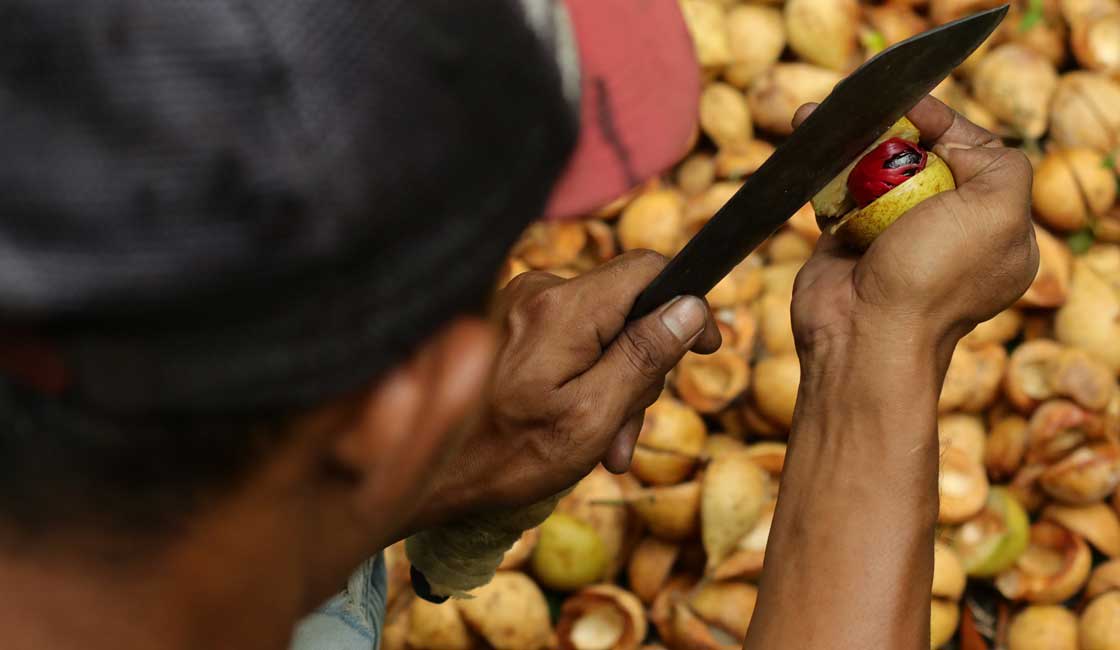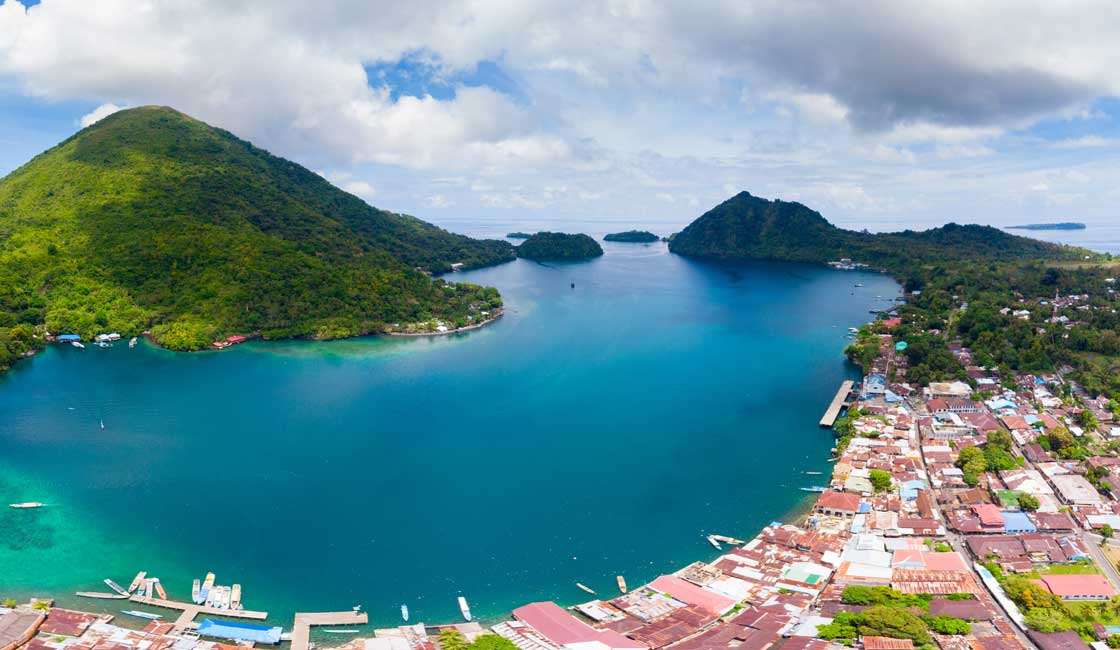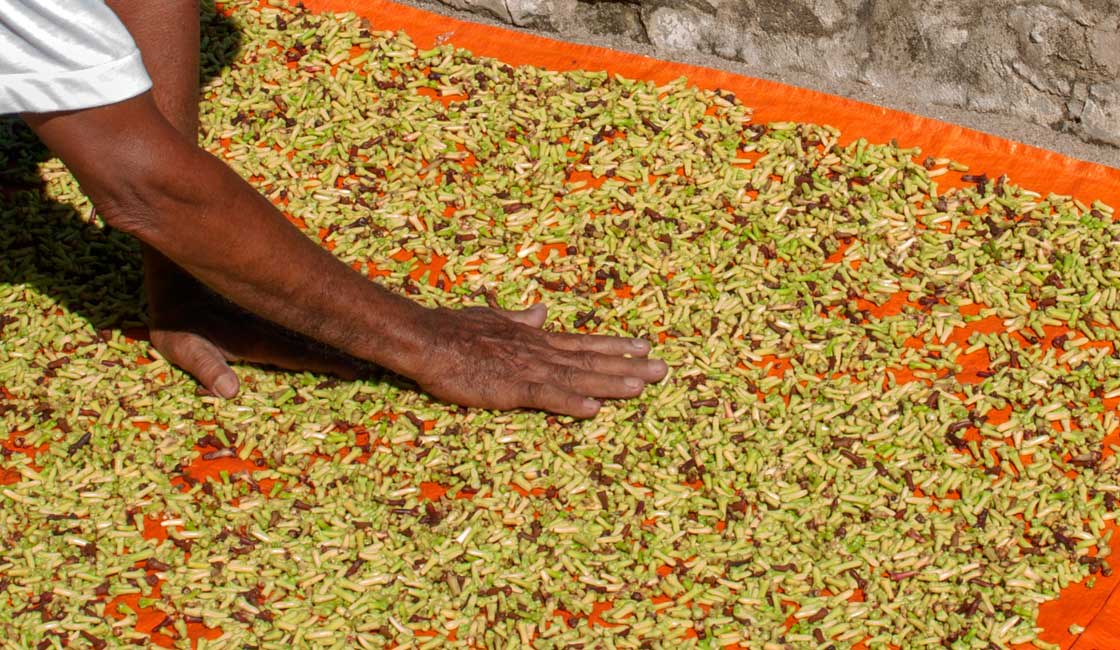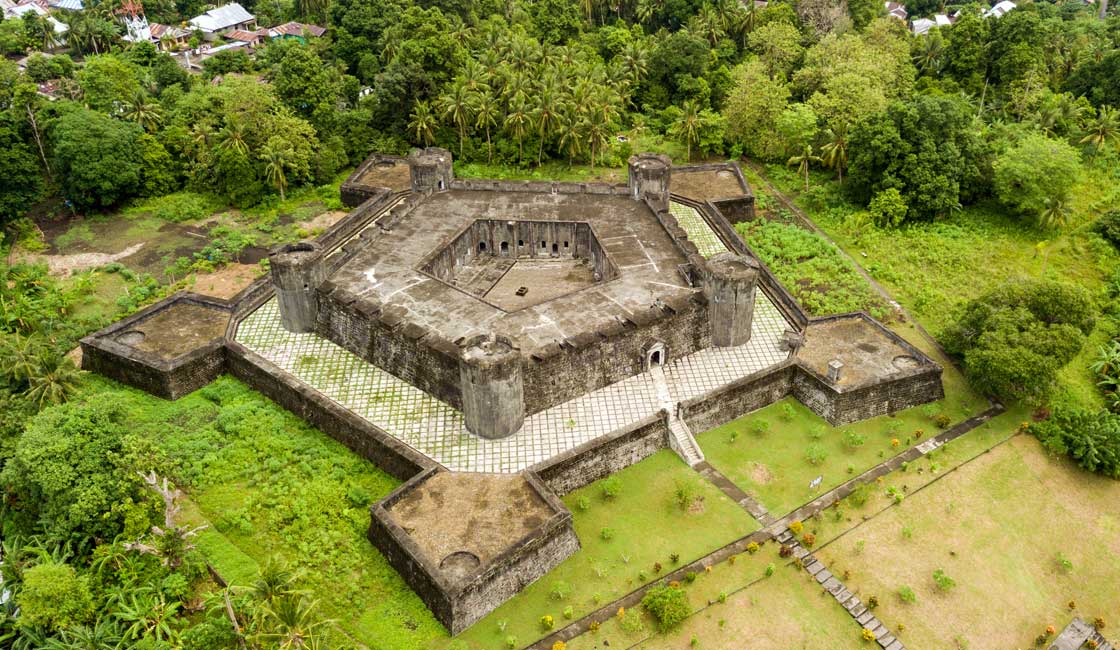
The Maluku (or Maluccas) Islands exist in the heart of Indonesia, or as they are more commonly known, the Spice Islands thanks to their fame for the quality of the nutmeg, cloves, pepper, and mace grown there. These rare flavorings became extremely popular in Western society around the 16th century after colossal interest from Europeans earned the islands their moniker.
However, the islands have been trading goods for over 2,000 years, originally providing jewelry and other trinket-style products unique to their land. China became the first big partner for trading goods with Indonesia in the sixth century, paving the way long before the Europeans became involved.
Today the Maluccas are more and more popular as a travel destination in Indonesia, for those looking for adventure and interested in seeing the authentic local living. Among all the things to do in Indonesia, the Spice Islands have a lot to offer.

The Beauty of Maluccas
Centuries prior to European discovery, Indonesia already had a powerfully built cooperation with China and other Asian nations. The first people to enter and actually manipulate the Spice Islands quite dramatically were Muslims. In the 14th century, this community migrated to Indonesia, bringing with them their religion and a new societal hierarchy, referred to as the rise of Islam; Muslim religion has been followed rigorously ever since by most of the population. Sultans replaced the council of elders in Indonesia to better the communication and process of spice trading with foreigners.

Cloves drying nowadays
After this, the Portuguese conquered the Maluku Islands and began buying and trading spices explicitly around the 1520s. It took English and Dutch civilizations another 80 years after this to actually have any proper involvement. Spices were eventually carried in ships from Indonesia to Europe, targeted mainly towards Venice. This was due to the fact Venetians were dominant over the Mediterranean Sea at the time, in addition to being well known for their respectful trading with Muslim states. By the time the products reached Venice, they were worth up to 1000% more than the original price!

Dutch presence remnants
The high demand and promising profit margin eventually sparked competition amongst European countries, which resulted in voyagers attempting to find alternative sailing routes to the Spice Islands – thus this conflict was the catalyst to the Age of Exploration. Mainly the Dutch continued to remain in control of the islands, and the majority of the other 17,000 islands in Indonesia, until the country became a republic in its own right in 1950.
In 1999 North Maluku and Halmahera split off and so now the islands are divided into two separate provinces – Maluku and North Maluku. Today the country has positive trade relations with multiple nations, supplying its beautiful products for other countries all around the world.
While Rainforest Cruises aim to provide accurate and up-to-date information, we make no representations as to the accuracy or completeness of any information herein or found by following any link on this site. Rainforest Cruises cannot and will not accept responsibility for any omissions or inaccuracies, or for any consequences arising therefrom, including any losses, injuries, or damages resulting from the display or use of this information.




